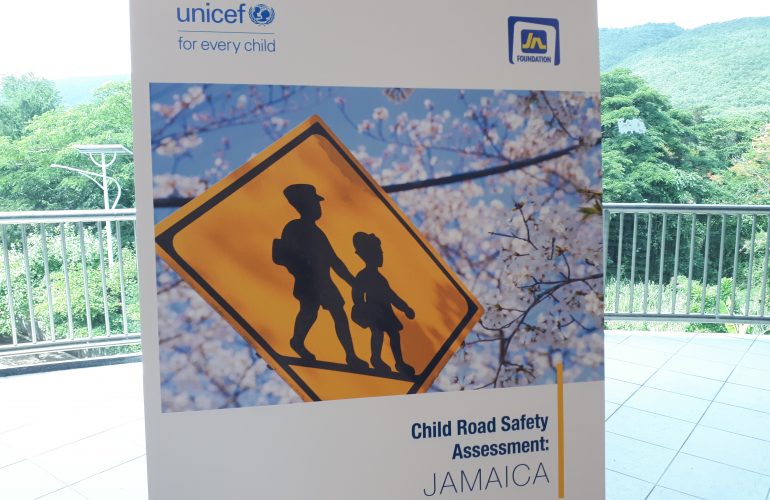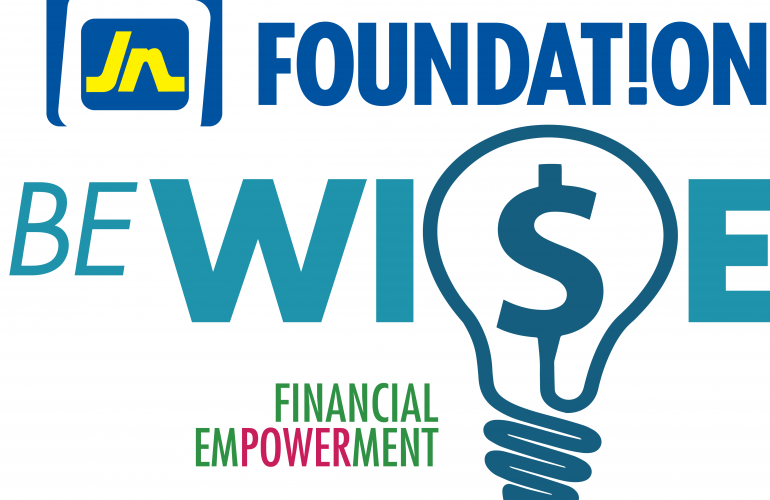Key Stakeholders Welcome Launch of National Helmet Wearing Coalition (NHWC)

Against the background of alarming data highlighting the negative correlation between motorcycle related deaths and non-helmet use in Jamaica, as well as data indicating the gap between awareness, ownership and consistent use of certified, standardised protective gear, stakeholders have welcomed the launch of the National Helmet Wearing Coalition (NHWC) as a big step towards addressing Jamaica’s motorcycle issues.
Guest speaker at the launch ceremony held at the AC Hotel on March 21, the Hon. Dr. Horace Chang, Deputy Prime Minister and Minister of National Security, said the Coalition aligns with the Government’s agenda regarding road safety and public order.
“I extend my heartfelt gratitude to the NRSC (National Road Safety Council), JN Foundation and the FIA Foundation for their tremendous contribution for an initiative such as this project,” he said adding that “motorcycle related issues must be addressed as a crucial component of our country’s overall strategy to improve public order and save lives. It is therefore imperative that we take protective measures to mitigate the risks posed by irresponsible individuals on our roadways.”
The Minister said the success of the National Helmet Wearing Coalition project will depend on the collective efforts of all stakeholders and their commitments to making a positive difference.
Dr Lucien Jones, Chairman of the Project Steering Committee and Vice Chairman of the NRSC, announced during the launch that the Ministry of National Security has already donated more than 2,000 helmets to the work of the Coalition.
Saul Billingsley, Executive Director of the FIA Foundation, the entity funding the project, said they are pleased to be supporting the initiative and remain committed to collaborating with all stakeholders over the long term.
“We have some understanding of how some other countries are trying to deal with their motorcycle issues and what we at the FIA Foundation have experienced is that having a National Helmet Wearing Coalition is a really great way to try to grapple with this. This is a shared responsibility but government must take a lead.”
Earl Jarrett, CEO of the Jamaica National Group and Director of the JN Foundation, noted that his organisation was also proud to extend its reach and support the Coalition project, which ultimately aims to protect lives.
“It’s all about putting people first, which is our motto at the JN Group, and recognising the need for us to have a healthy, vibrant society. Motorcycle fatalities is one of the largest group of fatalities, with recent data indicating that it is accounting for more than 30 per cent of all road fatalities. We are in danger of losing a generation of young people to these accidents and if awareness and persuasion were in place, we could have probably changed the trajectory of those who died,” he said.
Christopher Atkinson, a member of the Upshifterz Motorcycle Club, based in Mandeville, and a member of the Coalition who was present for the launch event, said he is looking forward to the work that will be undertaken by the Coalition towards creating a safer environment for motorcyclists, pillions and other road users.
The coalition was convened by the JN Foundation and National Road Safety Council (NRSC), in collaboration with the FIA Foundation, to heighten awareness about motorcycle helmet safety, prioritising import and use of certified helmets, through advocacy for policy development for helmet quality regulation and capacity-building initiatives.
Recent data from the Road Safety Council indicate that despite 94 per cent of motorcyclists recognising that helmets can save lives and 86 per cent owning helmets, 60 per cent report riding without helmets at times. Data also highlight that up to 80 per cent of motorcycle drivers who were not wearing helmets suffered fatal or severe head injuries on the nation’s roads.
“I’m glad that everyone is realising there’s a perpetual problem and that we have a culture of not wearing a helmet,” shared Mr Atkinson. “Hopefully this [Coalition] can put pressure on people to not just brush it off as something small but rather as something essential; and so riders understand that if you buy your motorcycle, before you even buy gas, you buy your [genuine] helmet”. The membership of the Coalition is being drawn from Government, law enforcement, transport associations, private sector, non-governmental organisations, youth organisations, academia, parish development committees and international organisations. The first meeting of the Coalition was held following the launch ceremony on Thursday.






